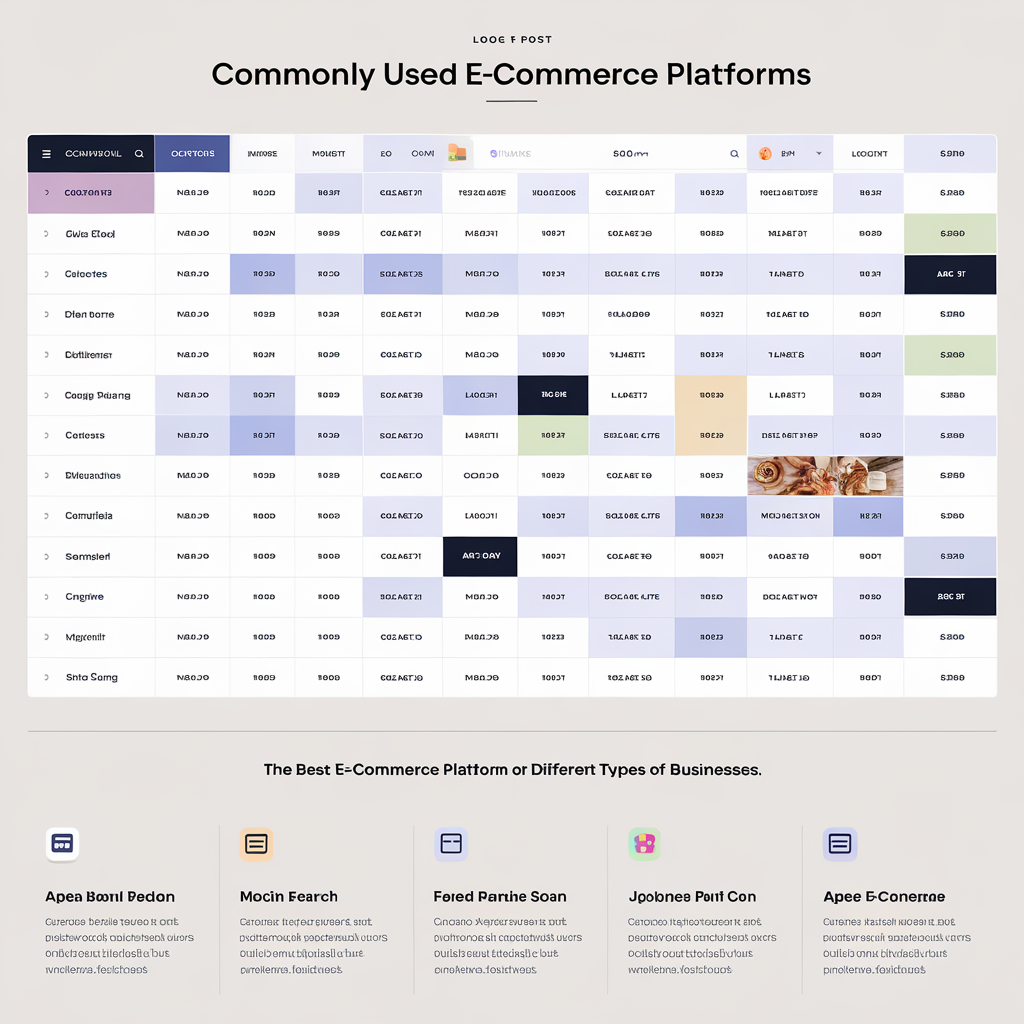E-commerce Platforms? A Beginner’s Guide to Online Selling

E-commerce Platforms
Have you ever wondered how online stores like Amazon or your favorite local boutique manage to sell products online so seamlessly? The secret lies in e-commerce platforms. Whether you’re planning to launch your first online store or simply curious, this guide will break down everything you need to know about these platforms and how they work.
What Are E-commerce Platforms?
E-commerce platforms are tools or software solutions that help businesses sell their products or services online. They serve as the foundation for creating and managing an online store. With an e-commerce platform, you can list products, process payments, track orders, and provide a seamless shopping experience for your customers.
Key Features of E-commerce Platforms
- Product Management: Easily add, edit, and organize your products.
- Payment Gateways: Accept secure payments using methods like credit cards, PayPal, and more.
- Website Design: Build an attractive storefront without needing coding skills.
- Order Tracking: Monitor your sales and shipments in real time.
- Marketing Tools: Use features like discount codes and email marketing to attract customers.
Why Do Businesses Use E-commerce Platforms?
E-commerce platforms simplify the process of selling online, making them essential for businesses of all sizes. Here’s why they’re so valuable:
- Ease of Use: Even if you’re not tech-savvy, platforms like Shopify or Squarespace make it easy to build and run an online store.
- Cost-Effective: Starting an online store is often cheaper than opening a physical one.
- Global Reach: Sell your products to customers anywhere in the world.
- Scalability: As your business grows, the platform grows with you, offering advanced tools and integrations.
Types of E-commerce Platforms
E-commerce platforms come in different types to suit various needs. Here are the most common ones:
1. Hosted Platforms
These platforms handle everything, from hosting your website to providing templates and tools. Examples include Shopify and BigCommerce.
Pros:
- User-friendly
- Minimal technical setup required
Cons:
- Limited customization
- Monthly subscription fees
2. Open-Source Platforms
Open-source platforms like WooCommerce and Magento allow you to customize every aspect of your store.
Pros:
- Complete control over design and functionality
- Cost-effective if you have technical expertise
Cons:
- Requires technical knowledge
- Ongoing maintenance needed
3. Cloud-Based Platforms
These platforms offer flexibility and scalability, making them ideal for growing businesses. Examples include Salesforce Commerce Cloud.
Pros:
- High scalability
- Reliable and secure
Cons:
- Higher cost
- Steeper learning curve
How Do E-commerce Platforms Work?
E-commerce platforms act as a digital storefront for your business. Here’s how the process works:
- Setup: Choose a platform, design your store, and list your products.
- Customer Shopping: Customers browse your site and add items to their cart.
- Checkout: The platform handles payment processing and secures customer data.
- Order Fulfillment: You receive the order details and ship the products to the customer.
Benefits of Using E-commerce Platforms
1. Streamlined Operations
Platforms provide tools to manage inventory, track orders, and process payments—all in one place.
2. Improved Customer Experience
A well-designed platform ensures a smooth shopping experience, encouraging repeat business.
3. Analytics and Insights
Get detailed reports on sales, customer behavior, and website performance to optimize your store.
How to Choose the Right E-commerce Platform
Selecting the perfect e-commerce platform depends on your business needs. Here’s a step-by-step guide:
- Assess Your Budget: Determine how much you can afford for setup and monthly fees.
- Define Your Goals: Are you looking for simplicity, customization, or scalability?
- Check Features: Ensure the platform supports essential tools like mobile optimization and SEO.
- Test Support: Reliable customer support can save you headaches down the road.
Commonly Used E-commerce Platforms

Shopify
- Best for beginners and small businesses.
- Offers a variety of templates and integrations.
WooCommerce
- Ideal for WordPress users.
- Provides flexibility and control for tech-savvy users.
Magento (Adobe Commerce)
- Perfect for large-scale enterprises.
- High customization and scalability.
Conclusion
E-commerce platforms are the backbone of the online retail world, enabling businesses to connect with customers and sell their products efficiently. Whether you’re starting a small shop or expanding a larger enterprise, there’s a platform tailored to your needs.
Take the time to explore your options, test features, and select the one that aligns with your goals. Remember, the right platform can be the difference between a thriving business and one that struggles to keep up.
FAQ
1. What is an e-commerce platform?
It’s a software solution that helps businesses create and manage online stores.
2. Do I need technical skills to use e-commerce platforms?
Not necessarily! Hosted platforms like Shopify are user-friendly and require no coding skills.
3. Can I sell digital products with e-commerce platforms?
Yes, most platforms support digital products like eBooks, music, or software.
4. What’s the best e-commerce platform for beginners?
Shopify is an excellent choice for beginners due to its ease of use and robust support.
5. Are e-commerce platforms secure?
Yes, reputable platforms come with built-in security features like SSL certificates and PCI compliance.


